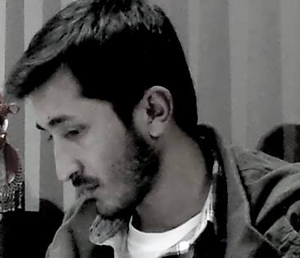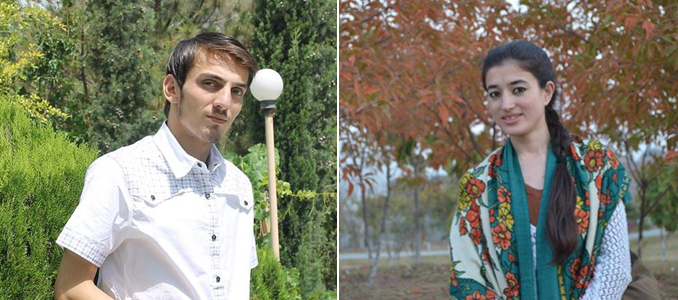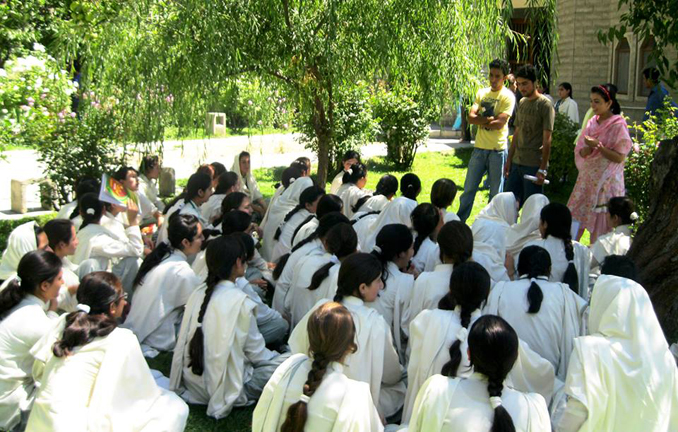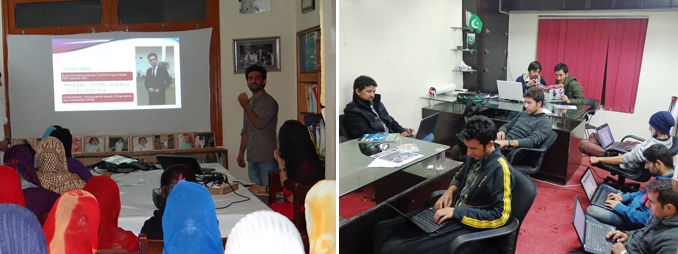Written by: Shahana Shah - Posted on: August 26, 2014 |  Comments
Comments
Google Translation: اُردو | 中文
The extraordinary potential of youth comes from the combination of energy and rich ideas. And the Organization for Educational Change (OEC) is a successful example of how to effectively channel this potential. A unique NGO set up and run entirely by young university students from Pakistan’s Gilgit-Baltistan region, on a purely volunteer basis, OEC is focused, efficient and growing fast.
The goals OEC has set itself are simple yet foresighted. It disseminates information regarding higher education opportunities in Pakistan and abroad, conducts frequent education expositions all over Gilgit-Baltistan, publishes a magazine and even offers scholarships. Its sole focus being education, OEC has managed to become a diverse, apolitical forum for youngsters to offer skilled services while learning important lessons that would help them in their own future careers.
 |
Naveed Shah |
Syed Naveed Shah, twenty-five, was one of the founding members of OEC and has served as its president. He is a graduate of SZABIST and now works for UNDP. He recalls how he and a group of his friends from Aga Khan Higher Secondary School, Gilgit, conceived the idea that was to become OEC while on a trip to nearby Naltar valley, famous for its ski slopes, in 2009. Themselves from one of the most prestigious schools in Gilgit-Baltistan, they were impressed by the potential of Naltar’s youngsters, but realized that correct exposure and guidance were required to develop the talents of those children. It began with just an informative brochure followed by a magazine and by 2010 Naveed and his friends had officially launched the organization.
Not only is OEC unique in being run by committed volunteers, it also has many other strengths. Its team is diverse, democratic and very modern in its work dynamics. It welcomes young men and women from all communities of Gilgit-Baltistan to serve through its platform, and that is a much-needed positive development in a region that has seen much sectarian unrest.
 |
Khayyam, President OEC Nelufar, Vice President |
Nelufar Raza, a twenty-one year old student at the National University of Science and Technology, is the current vice president of OEC. She explains that she and the president, Khayyam Mohammad Beg of Quaid-e-Azam University (also twenty-one), were determined to induct more female members into their team. “This year we have more girls than ever, and that was deliberate,” she says. Nelufar herself rose in the organization through the regular election rounds from member to head of HR and now vice president. Now she coordinates online with Khayyam, who is currently studying in the United States, and other team mates in Islamabad, Rawalpindi, Gilgit, Abbottabad and Lahore online to run different projects at various places simultaneously.
The success of OEC is a result of its clarity of objectives. “You have to know what the impact of anything you do will be. We wanted to provide tangible information in places where there is no access to the internet or computers,” Naveed says. And this they have done by publishing their magazine, Educure, which contains information regarding admission criteria, fee structures and test schedules of all national universities as well as details of various international scholarships, besides the success stories of high-achieving students.
Teams of OEC visit schools in villages and towns all over Gilgit-Baltistan to inform and guide young students contemplating their options for higher education. These sessions are divided into components like self-discovery, confidence-building, career information and individual counseling.
 |
OEC volunteers addressing an all girls school in Hunza |
OEC’s concept of education is evolved and wholesome. One of its projects, Discovering Gilgit-Baltistan, aims to promote the cultural heritage, social experience and natural beauty of the region through activities involving its youth. Photography competitions have been held under this project and this year’s agenda includes short-story and essay writing competitions. Many OEC team members are studying on scholarships in universities abroad and act as ambassadors of their own projects as well as of Pakistan.
The new team for 2014-2015 led by Khayyam and Nelufar is looking to reform and expand. They aim to increase the number of scholarships offered by OEC as more and more of its former members enter their professional lives and are able to donate to it. Setting up a well-resourced library is also one of their goals. Nelufar stresses on dedicated team work. “We don’t just give our time and skills to OEC. We are also being groomed personally and professionally by the practical work experience,” she says. She has high hopes for the future of the organization: “It will grow stronger. It has already developed a lot very quickly. We are building a good reputation and with increasing donors it will become more sustainable.” Another factor that drives OEC in the right direction is its goodwill partners who are successful professionals in the academia and media, providing council as symbolic members.
 |
Education expo at Gilgit Educure team at work |
The OEC team remains in touch with students whose lives it has given direction to. “There are many such success stories. There were even some students who said that they had given up on the dream of higher education until they were guided by OEC and changed their mind,” Naveed reveals. At the end of the day, after all the effort and time put into the cause of education, there can be no better reward than to know that one could be a guide to a young mind on its quest for intellectual excellence. And that is what makes it worth their while for Team OEC.